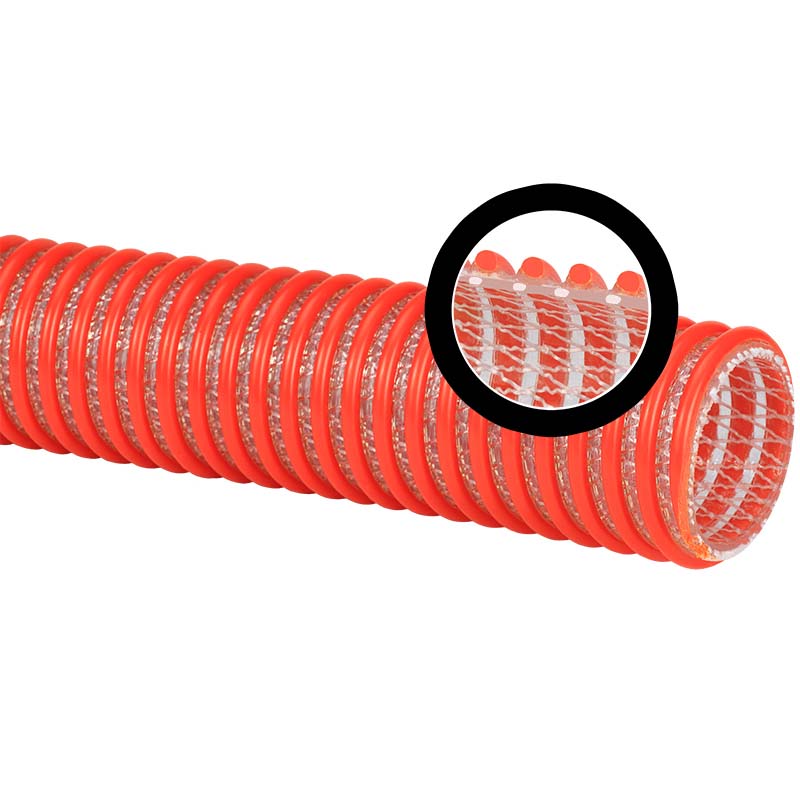Durable and Flexible PVC Hose Pipe for Various Applications in Home and Garden Use
The Versatility and Applications of PVC Hose Pipes
Polyvinyl chloride (PVC) hose pipes have become a staple in various industries, gaining popularity due to their durability, flexibility, and resistance to various chemicals. These hoses are made from a synthetic plastic polymer that not only provides structural integrity but also ensures that the hoses can withstand harsh weather conditions, making them suitable for both indoor and outdoor applications. In this article, we will explore the features, benefits, and diverse applications of PVC hose pipes.
Key Features of PVC Hose Pipes
One of the most notable features of PVC hose pipes is their excellent tensile strength. This strength ensures that the hose can handle high-pressure applications, such as in construction sites or industrial settings, without bursting or getting damaged. Additionally, PVC is lightweight, making it easy to transport and handle, which is a critical consideration in industries where mobility is key.
PVC hose pipes are also known for their resistance to abrasion, making them ideal for transporting liquids and gases in various conditions. Their smooth interior allows for efficient flow, reducing turbulence and preventing blockages that can lead to a drop in performance. Furthermore, PVC hoses are resistant to corrosion, making them a viable option for transporting chemical substances.
Benefits of Using PVC Hose Pipes
The benefits of PVC hose pipes extend beyond their physical characteristics. One of the major advantages is their cost-effectiveness. Compared to hoses made from rubber or metal, PVC hoses are generally less expensive to produce and maintain, leading to significant savings for businesses. This affordability does not compromise quality, as PVC hoses can rival more expensive options in performance and durability.
pvc hose pipe

Another advantage of PVC hose pipes is their versatility. These hoses are available in a variety of sizes, lengths, and colors, allowing for customization based on specific needs. Whether you need a flexible hose for a garden irrigation system or a heavier-duty option for industrial machinery, there is likely a PVC hose that fits the bill.
Applications of PVC Hose Pipes
The applications of PVC hose pipes are vast and varied. In agriculture, they are commonly used for irrigation systems, allowing for the efficient transport of water to crops. Their flexibility and ease of use make them popular among farmers who need reliable and affordable solutions for their irrigation needs.
In the construction industry, PVC hoses can be found on job sites where they are used for transporting water and other liquids. Their high-pressure resistance enables them to function effectively in various construction applications, including cement mixing and dust suppression.
Moreover, PVC hose pipes are widely utilized in the automotive sector for coolant and fuel lines. Their resistance to heat and chemicals ensures that they maintain structural integrity under demanding conditions. Additionally, these hoses are commonly found in home utility applications, such as in vacuum cleaners, pressure washers, and household plumbing.
Conclusion
In conclusion, the PVC hose pipe is an essential tool across multiple industries due to its impressive characteristics and versatility. From agriculture to construction and automotive applications, these hoses provide effective solutions that are both reliable and cost-efficient. As industries continue to seek durable and adaptable materials, PVC hose pipes will undoubtedly remain a popular choice for years to come. Their capacity to withstand the rigors of diverse applications makes them an invaluable resource in today’s fast-paced world.
-
Top Quality Oxy Acetylene Hoses for Sale Fit for Welding DemandsNewsJul.28,2025
-
The Future of Pneumatic Air Tubes in IndustryNewsJul.28,2025
-
Superior and Reliable LPG Hose Pipe Solutions for Every NeedNewsJul.28,2025
-
Exceptionally Durable and Versatile Premium Braided PVC TubingNewsJul.28,2025
-
Best Adapters for Connecting Garden Hose to PVC Pipe ConnectionsNewsJul.28,2025
-
The Essential Role of LPG Hoses in Safe and Efficient Gas DistributionNewsJul.16,2025














